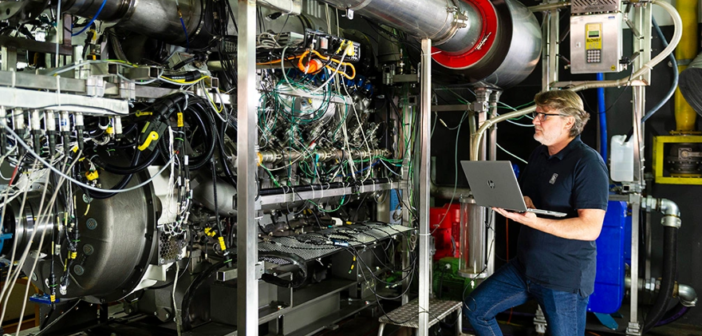In a major advance for hydrogen power, Rolls-Royce announced last week that it completed testing a hydrogen-powered MTU engine, and it worked.
The bench test was on a 12-cylinder MTU Series 4000 gas engine (pictured above) using 100 percent hydrogen fuel. For the test, Rolls-Royce engineers had to modify some MTU components, including fuel injection, turbo-charging and piston design, because of the different combustion of hydrogen, compared to gas.
The test lasted several months, but then Rolls-Royce announced it was successful in terms of efficiency, performance and combustion.
MTU has been making engines in Germany for more than a century. Rolls-Royce bought the company in 2011, and is now trying to determine if hydrogen power is feasible in the commercial market. MTUs are often the engines of choice in the yacht market around the world.
The advantages of hydrogen is that it is free of carbon emissions, it’s reliable, and it’s easily generated. Solar or wind energy can be channeled through an electrolyzer to convert water to hydrogen, which can be stored in fuel cells for future use.
“We see hydrogen as one of the central elements of the energy transition,” said Jörg Stratmann, CEO of Rolls-Royce Power Systems. “It can be used for both storage of excess energy and as a fuel, not only for engines but fuel cells and cogeneration plants to generate climate-neutral electricity and heat.”
Based on the successful bench test, Rolls-Royce said it could offer a hydrogen conversion for MTU engines that are already installed. The first real-world test of the hydrogen-powered engine will come next year in the German port of Duisburg, where it will be used to supply power for running the port and container terminal. Read more:




